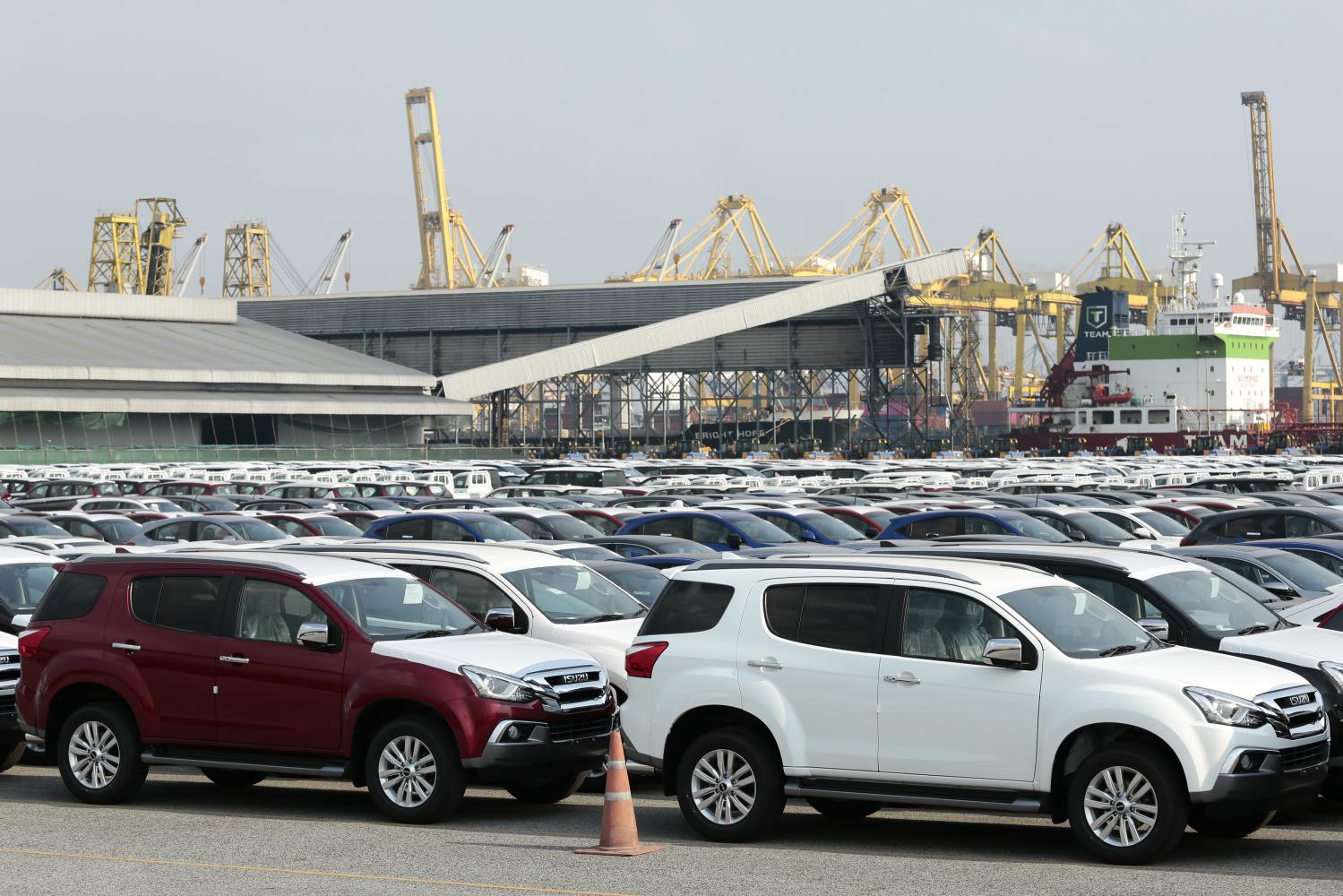
The Federation of Thai Industries (FTI) expects Thailand's car exports to miss the target of 1 million units this year amid growing concerns over a raw material shortage and surging prices, driven by the Russia-Ukraine war.
Prices of key raw materials for car manufacturing such as steel will increase while the prolonged scarcity of semiconductors, another major component, is possible, said Kriengkrai Thiennukul, vice-chairman of the FTI.
Automakers encountered a global semiconductor shortage long before the war, which broke out on Feb 24, thanks to a mix of factors including higher demand for electronic equipment as more people worked from home during the pandemic and the US-China trade war, which led to restrictions on chip imports from China.
"We may need to adjust our car export target, as steel is expensive and the chip shortage continues," he told a forum on the energy and trade impact of the Russia-Ukraine war, which was held yesterday by the Thailand Energy Academy Club.
The war threatens to affect steel and semiconductor markets as Ukraine supplies the US with more than 90% of its semiconductor-grade neon, important for lasers used in chipmaking, while Russia is a major source of palladium, a type of metal used in sensors and memory, according to media reports.
The FTI's automotive club previously predicted total car production could reach 1.8 million units this year, with 1 million to be exported based on higher global demand.
Mr Kriengkrai also raised concerns over rising inflation as a result of the energy price surge, which will lead to higher electricity bills, putting pressure on production costs.
"Goods prices will be eventually adjusted," he said.
In related news, Russia and Ukraine are major producers of wheat, a key ingredient in animal feed. If supplies from these two countries disappear, the costs of animal feed will also increase.
"Prices of broilers have increased, but European customers need to buy them from Thailand," said Mr Kriengkrai.
In other industries, manufacturers cannot avoid higher production costs if the government raises electricity bills. The Energy Regulatory Commission (ERC) expects the power tariff, used to calculate electricity bills, to rise to more than four baht per kilowatt-hour (unit) later this year as imported liquefied natural gas (LNG) becomes more expensive.
Natural gas makes up 56% of the fuels used for electricity generation. Thailand needs to import more LNG as supply dwindles from the Gulf of Thailand. Gas prices usually increase after oil price hikes.
"We may see the power tariff reach 4.5 baht a unit," said Khomgrich Tantravanich, secretary-general of the ERC.